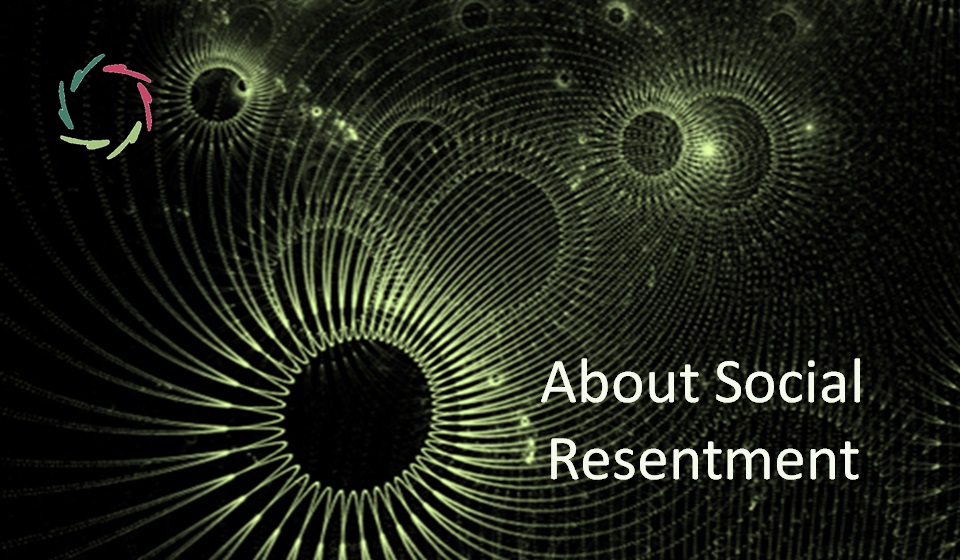About Social Resentment

Only individuals can feel resentment. Societies can – and frequently do – provoke it as an underlying current.
A Nietzschean topic
In Nietzsche’s thinking, letting oneself be enslaved by an overzealously self-oriented society fuels an individual’s resentment. In turn, this translates into self-hate and hatred of others, discrimination, vandalism, violence towards others, and so on.
I would add to this all kinds of depression and psycho-somatic suffering — products of profound tensions in which social resentment not seldom plays a significant role.
As a matter of fact, social recrimination doesn’t solve this problem. Meanwhile, it creates more social resentment. Nietzsche’s answer was to incite people to rise against the enslavement and transcend it by becoming a Better Person.
Well, kind of.
People in that age – such as Nietzsche himself – were even less acquainted with general ideas and specific science about the non-conscious and subconceptual as they are now. I suspect that this made him understand less than optimally, explain it less understandably, and above all, be much less correctly understood.
Comes out a disputable interpretation of the Übermensch and lots of social mayhem. Comes along a dictatorial type who abuses this interpretation and there we go — again.
The lesson is that one should be careful with human depth-related to-the-core insights. These are very powerful and challenging, yet also necessary — now more than ever.
The positive way
With the above lesson in mind – trying not to rashly forget it – we may talk about human growth, Inner Strength, lessening Inner Dissociation, etc. You got it: AURELIS.
Turning around social resentment is surely one of the aims. Correctly positioning the ego and the deeper self is mandatory at each step of this slippery way.
Let people be people, then support them in human growth. Don’t reach out for surface-level emotions too much. Don’t take recourse to regulations too easily. Value depth.
Social resentment brings social responsibility.
In two ways:
- We should build a society that takes care of people from the inside out, starting from what is good and leads to better.
- Society = the people themselves, of course. It’s good to see one’s societal actions – job-related if you like – as primarily an accumulation of occasions to influence others in that same direction.
Yes, there is much to be done.
In socio-politics, education, healing, etc.
Also in spirituality, defense, leadership, culture, Culture, preparing the future for the next generations, dealing with ‘guilt’ while striving for societal safety, managing overconsumption and ensuing climate disaster, relieving rampant inequality and inequavalidity, dissolving racism, preventing an escalation of superficiality in thinking and doing, solving a ubiquitous meaning crisis, relieving addictions, etc.
Need I say more? In every field, there are numerous occasions to specifically give attention to supporting individuals in heightening their perception of self-worth from the inside out. This way, they can be genuinely helped without being turned into dangerous Übermenschen. Quite the contrary, they can grow into Compassionate human beings who value excellence in Compassion.
Each of us can give attention to this every day, all day long. AURELIS is meant to be one kind of support if wanted.
Related to resentment is frustration.
An Aurelian core concept is frustrationless desire. This also includes the desire to diminish resentment at a societal level.
The one-on-one streak, as alluded to above, is part of this.
Another part is thinking about how this can be brought top-down. What features do institutions need to enable/empower individuals from the inside out — noting that this is fundamentally different from the outside in?
What does AURELIS need to become a societal force?
Reaching many, obviously.
But also specific insights, foresights, decisions, cooperations, inspirations, etc. Above all, the main focus should always remain Compassion, basically.
There is no resentment in a Compassionate stance.
There is also no perfection but relentless striving.
Today is the first day of 2024.
My good intention is to continue striving.


